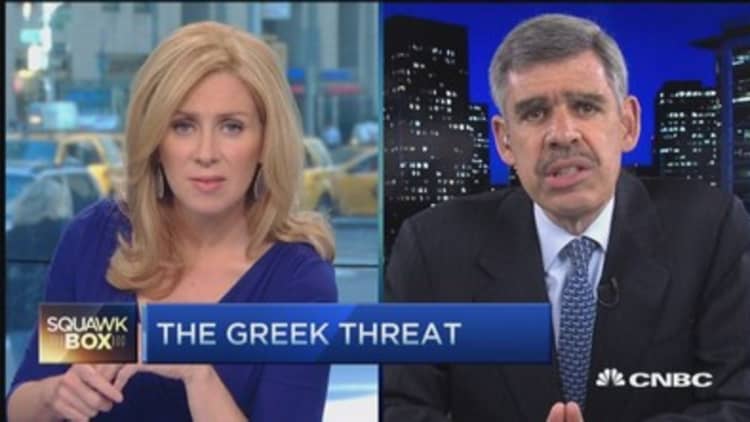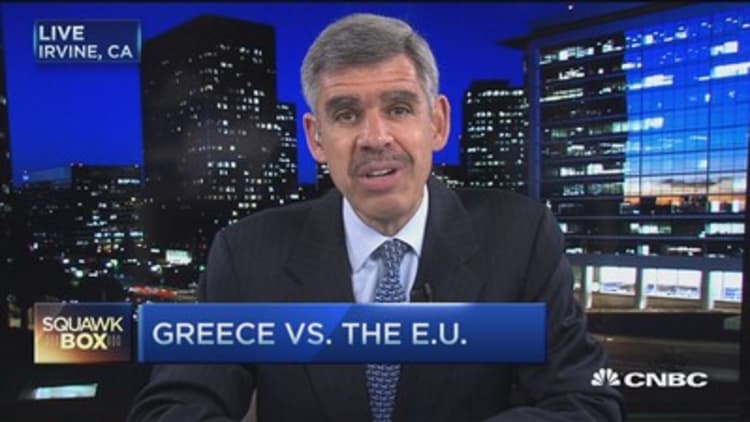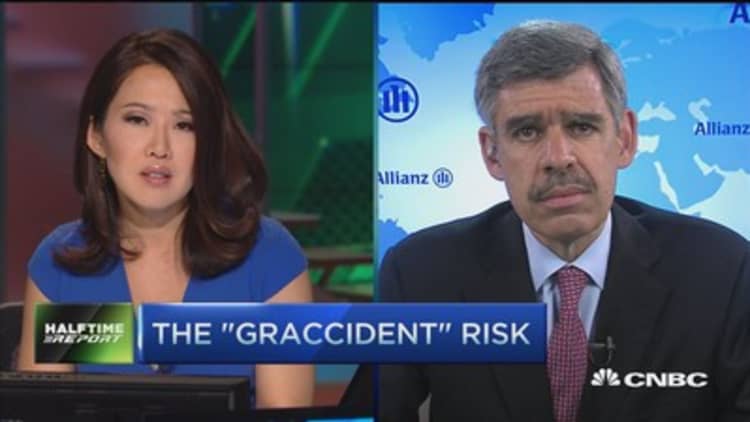


There could be a "big air pocket" in stocks if fundamentals, at some point, don't validate valuations, Mohamed El-Erian said Tuesday.
The market has been supported by "ultra-loose" monetary policy around the world and cash from corporate balance sheets being put to work in the form of dividends, buybacks and mergers and acquisitions, Allianz' chief economic adviser said on CNBC's "Squawk Box."
Read MoreEl-Erian: Greece 'accident' 55% to 60% probability
While the Federal Reserve will probably hike interest rates this year for the first time in nearly a decade, El-Erian advised investors against obsessing over it. (Tweet This)
The Fed is "likely to hike this year, most probably in September, because the weakness in the economy is transitory and [they're] not too worried about inflation either on the way up or the way down."
On Friday, Fed Chair Janet Yellen said a rate hike this year would be appropriate if the economy improves. She stressed that the pace of any increases would be gradual and take several years to normalize. Yellen acknowledged the recent economic sluggishness, but predicted the first-quarter slowdown would be largely short lived.
While the stock market was closed for the holiday on Monday, Fed Vice Chairman Stanley Fischer said in a speech that it's "misleading" to give so much importance to the first rate hike. Reiterating Yellen's comments, he said the process of returning to a more normal level of rates would take a few years.
Taken together, Yellen and Fischer's comments point to a "stop-go hiking cycle," El-Erian said. "They are telling us this is going to be the loosest tightening in the modern history of central banking."
He said the level of interest rates at the end of the tightening is going to be lower than historical equilibrium rates.


